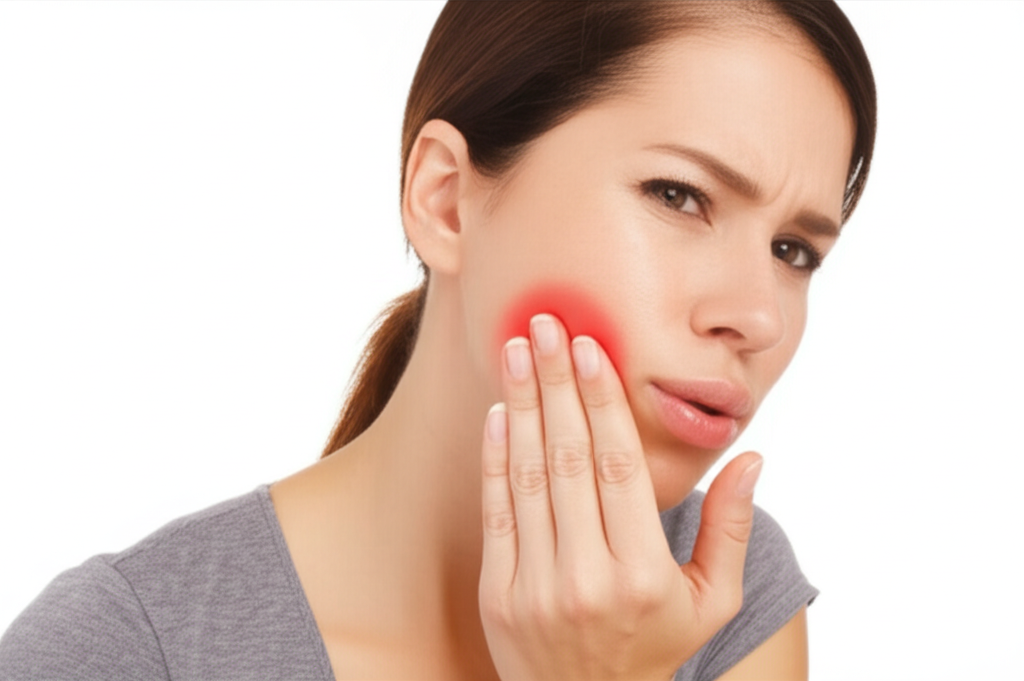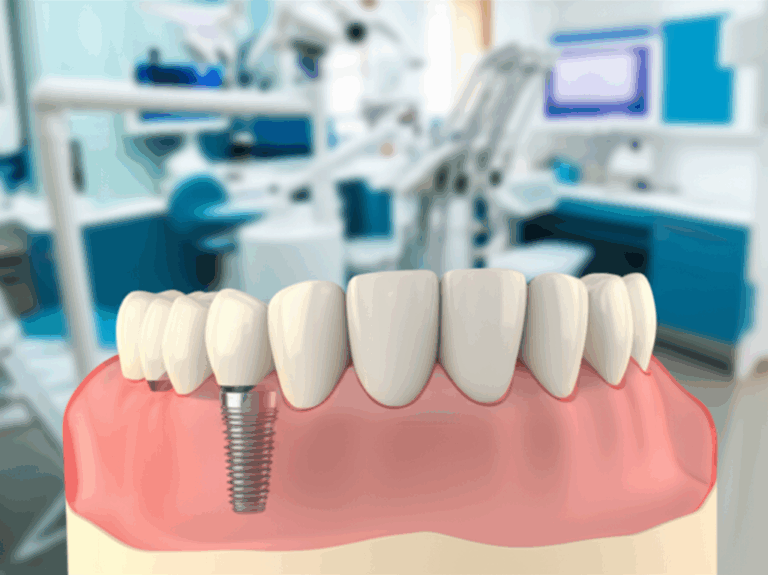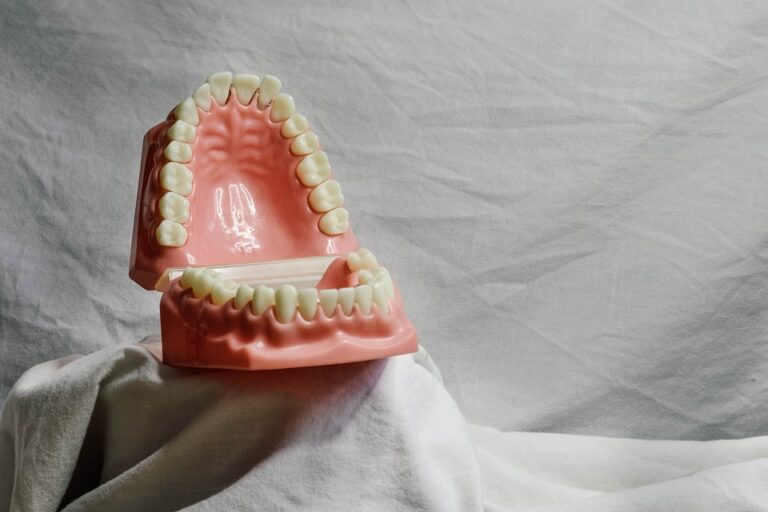
Can Dental Problems Cause Ear Ringing? Understanding the Surprising Link
It started small. I heard a soft, high-pitched noise in my right ear that I only noticed when the room was quiet. At first, I thought it was because I was stressed or maybe drank too much coffee. But then it got louder and didn’t stop. It was there when I woke up, and still there when I tried to sleep. It drove me crazy. I saw doctors, even an ear, nose, and throat (ENT) specialist who said my hearing was good and my ears looked normal. He called it tinnitus and said I’d just have to get used to it.
I felt really frustrated. But around that time, I noticed something else: my jaw ached, especially in the morning; my jaw clicked when I yawned; and sometimes I got headaches starting near my temples. I never thought these had anything to do with each other. One was my ear, one was my jaw. It wasn’t until I had a dental check-up and mentioned the ringing to my dentist that things started to make sense. He said, “You know, your jaw and ear are right next to each other. Sometimes, one can bother the other.”
That conversation got me started on figuring things out—and brought me real relief. And the answer to the big question is yes, dental problems can make your ears ring. If you’re wondering about this, you’re not making it up and you’re not by yourself. Here’s what I learned, so you can find some answers and, hopefully, some peace and quiet.
Table of Contents
- The Anatomical Connection: Why Your Jaw Can Affect Your Ears
- Key Dental Problems That Can Lead to Ear Ringing (Tinnitus)
- Identifying the Signs: Beyond Just Ear Ringing
- Seeking a Diagnosis: Who to See and What to Expect
- Effective Treatment Options for Dental-Related Tinnitus
- Preventing Dental-Related Ear Ringing
- Frequently Asked Questions (FAQs)
The Anatomical Connection: Why Your Jaw Can Affect Your Ears
The first thing I had to understand was how my teeth could have anything to do with my ears ringing. It seemed impossible until my dentist explained it to me. It’s all about how close everything is in your head. Your jaw and ears are neighbors in your skull—think about someone playing loud music in the apartment next to yours.
How Close the Jaw and Ear Are
Your temporomandibular joint (TMJ)—the hinge that lets your jaw move—is just next to your ear canal and all the small parts inside your ear. They are so close together that when your TMJ is sore or bothered, it can press or cause swelling right by your ear. This can make your ear feel full, hurt, or ring.
Nerves That Connect Your Face, Jaw, and Ear
This is what really made things clear for me. The nerves that go to your teeth, jaw, and ears all kind of travel together. The trigeminal nerve is the big one—it has parts that go to your face, teeth, and even connects to how you hear things.
If there’s a dental problem—like a hurting tooth or tired jaw—the pain message goes up this “highway” of nerves. Sometimes these messages get mixed up, and your brain thinks pain from your jaw is actually a sound. That’s called "referred pain," which is why a sore tooth can feel like an earache, or why jaw tension can show up as ringing in your ears.
Muscles Can Also Be the Problem
It’s also about the muscles you use to chew—like the big muscle in your cheek and the one near your temple. If you grind your teeth (called bruxism), these muscles get tired and sore. These jaw muscles are very close to your ear and even connect to tiny muscles inside your ear.
When your jaw muscles are always tight or hurt, they pull on nearby things and can mess with the tube that connects your throat and ear (the Eustachian tube). If this tube isn't working right, you feel pressure, stuffy ears, or hear ringing.
Key Dental Problems That Can Lead to Ear Ringing (Tinnitus)
Now that I knew how it could happen, I wanted to know what dental problems actually cause it. Turns out, there’s more than one.
TMJ (Temporomandibular Joint) Disorders
This is a main reason. TMJ disorders (or TMD) are problems with your jaw joint and jaw muscles. My clicking jaw and sore mornings were sure signs of this. If your TMJ is not working right—from arthritis, an injury, or something out of place—it swells up and makes the nearby ear upset too. One study even said 80% of people with jaw problems had ear troubles like ringing or pain.
Teeth Grinding and Clenching (Bruxism)
Bruxism means you grind or clench your teeth, usually at night. Most people don’t know they do it. All that crunching puts a ton of pressure on your teeth, jaw, and the muscles you chew with.
Think about squeezing your fists as hard as you can for eight hours—that’s what you might do to your jaw in your sleep. The tired muscles can send messages that end up as ringing in your ear. Stress can make it worse, so if you’re tense and your ears start to ring, this could be the reason.
Bad Bite (Malocclusion)
Malocclusion is a dentist word for your teeth not lining up right. You might have an overbite, underbite, or some crooked teeth. Over time, a bad bite forces your jaw to move in a way it doesn’t really want to. This causes extra pressure and muscle tightness, which can annoy your TMJ and muscles, and lead to ear ringing too. Fixing the bite (braces, crowns, or other dental work) can help a lot.
Dental Infections Like Abscesses and Gum Disease
Here’s a more direct reason. If you have a big tooth infection, like an abscess, the swelling and pressure are huge. The roots of your big back teeth are really close to your sinus and ears.
A tooth infection makes a pocket of swelling that can press on nerves nearby. This can send weird messages that show up as pain or ringing in your ear. It’s not just abscesses—a bad gum infection or a major cavity hurting the middle of your tooth can make your ears ring too.
Impacted Wisdom Teeth
Wisdom teeth cause trouble. When they don’t come in straight, or get stuck, they push on other teeth and the jaw bone near the back of your mouth—right near your TMJ and ear. This pressure can lead to pain, headaches, and ringing in the ears.
Nerve Trouble From Dental Work (Rare)
This almost never happens, but if a hard dental job like taking out wisdom teeth or a root canal hurts a nerve nearby, it can make things feel weird, including ringing in your ears. It’s very rare and usually temporary.
Identifying the Signs: Beyond Just Ear Ringing
To figure out if your ringing is from your teeth, look for other clues. For me, it was a bunch of little things I hadn’t put together. If you have ear ringing plus any of these, tell your dentist:
- Jaw problems: Pain or stiffness in your jaw, especially when you wake up
- Jaw noises: Clicking or popping when you open your mouth, eat, or yawn
- Chewing is hard: Trouble chewing or feeling like your teeth don’t fit together
- Hard to open mouth wide
- Headaches: Especially at your temples or along the sides of your head
- Neck, face, or shoulder pain
- Ear symptoms besides ringing: Stuffed feeling, pressure, or muffled hearing, but the ear doctor says your ear is fine
If you see yourself in this list, your ear ringing isn’t just tinnitus—it might come from your jaw or teeth.
Seeking a Diagnosis: Who to See and What to Expect
You think it’s your teeth or jaw—now what? It can be confusing who to see first.
I started with my dentist, and I think you should too. Dentists are trained to catch teeth grinding, bite problems, and jaw troubles. Here’s what usually happens:
Most of the time, your dentist can help. Sometimes you might also see an oral surgeon for hard jaw problems, or an ENT to make sure your ears are okay. A physical therapist can also help your jaw feel better.
Effective Treatment Options for Dental-Related Tinnitus
The good news? If the ringing in your ear comes from a dental problem, fixing that problem can make the ringing quieter or even go away. What helps depends on what’s causing it.
Dental and Jaw Treatments
- Night Guards/Splints: This helped me the most. For grinding or jaw problems, a custom night guard or splint is often the first thing dentists use. You wear it at night, and it stops you from grinding. It also helps your jaw relax. One made just for your mouth (from a night guard dental lab) works better than store-bought ones.
- Fixing Your Bite: If your bite is the problem, it might mean braces, new fillings, or crowns to get your teeth lined up right.
- Treat Infections: If an abscessed tooth is causing the problem, a root canal or pulling the tooth usually helps, along with antibiotics.
- TMJ Treatments: For big jaw problems, you can see a physical therapist to stretch and strengthen your jaw, take anti-swelling medicine, or even get shots to help with swelling.
- Taking Out Wisdom Teeth: If they are pushing and causing pain, having them removed often makes things better fast.
Lifestyle and Self-Help
While you’re getting treatment, there are things you can try at home:
- Manage Stress: Stress makes you clench your jaw more. Try breathing exercises or other ways to relax.
- Eat Soft Foods: If your jaw hurts, keep to soft foods for a while to give it a rest.
- Warm or Cold Packs: A warm washcloth helps relax sore muscles. Ice helps if things are swollen.
- Avoid Bad Habits: Don’t chew gum, bite your nails, or prop your chin on your hand.
Sound and Tinnitus Therapy
Sometimes the ringing keeps going even after you fix your dental problem. Don’t give up—there are ways to help, like using white noise machines to cover up the ringing, or talking to someone (CBT therapy) to help your brain tune out the noise.
Preventing Dental-Related Ear Ringing
Stopping it before it starts is best. Now that I know about it, I take better care of my mouth. Here’s what helps:
- See Your Dentist Regularly: Don’t wait for pain. Regular check-ups catch problems early. Good, steady Dental Care is your best prevention.
- Act Fast for Grinding: If your partner says you grind your teeth, or you wake up with a sore jaw, tell your dentist. Getting a night guard early can prevent a lot of problems.
- Keep Good Oral Habits: Brush, floss, and get cleanings so you don’t get infections that can cause pain and ear problems.
- Watch Your Stress: Find ways to handle stress—exercise, hobbies, or just talking about your worries.
It’s All Connected
Learning that my ear ringing really started with my jaw changed everything. It showed me that our bodies are all connected. One small problem in one place can show up as a weird symptom somewhere else.
If you have ringing in your ears and think your jaw or teeth might be involved, trust your gut. This is a real, well-known body connection. Talk to your dentist, tell the whole story, and start looking for the reason. The first step to feeling better is finding out what’s really causing the problem.
Frequently Asked Questions (FAQs)
Q: Can a cavity cause ear ringing?
A: Usually a small cavity won’t cause ear ringing. But if a cavity gets really deep or infected, the swelling and pressure can fire up the nerves that connect to your ear and make it ring.
Q: How long does dental-related tinnitus last?
A: It depends on why it started and how fast you fix it. If it’s from an infection, the ringing may go away in days or weeks once treated. If it’s from jaw grinding or TMJ, it can take weeks or months of steady treatment to calm down.
Q: Is dental tinnitus permanent?
A: Most of the time, dental tinnitus isn’t forever. If you fix the cause (muscle tension, infection), it usually gets better or goes away. But if you ignore it for years, sometimes the ringing can stick around.
Q: Can stress make dental ear ringing worse?
A: Yes. Stress is a big factor. It makes you clench your jaw and tighten your muscles, which adds to the ear ringing. Keeping your stress down can really help.
Q: When should I worry about ear ringing?
A: Always tell your doctor about new or ongoing ringing. Get help right away if it’s loud, just in one ear, comes with hearing loss or dizziness, or sounds like your heartbeat. Sometimes, these can mean there’s another problem besides your teeth or jaw.








